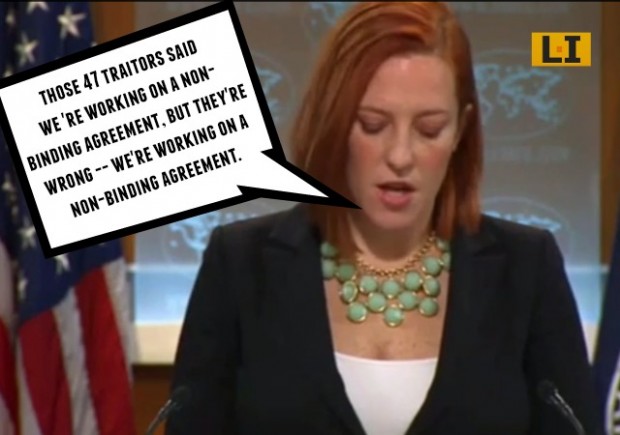The International Media’s Amoral Campaign against Israel
On May 19, 2015, Col. Richard Kemp CBE gave a speech at the Begin Sadat Center of Bar-Ilan University in Tel Aviv. The prior day he was awarded an honorary degree by Bar Ilan. Col. Kemp was the former Commander of British Forces in Afghanistan who subsequently worked with the UK Joint Intelligence Committee and later the British Cabinet national crisis group on counter terrorism. He has testified as an expert witness defending Israel before the UN Fact Finding Mission on the Gaza Conflict and the UN Human Rights Council on the controversial Goldstone Report. Col. Kemp has been a much sought after speaker on Israel and the IDF roles in the three Gaza wars with Hamas, the most recent being Operation Defensive Edge in 2014. Those talks have addressed IDF purity of arms military doctrine, false accusations of excessive civilian collateral casualties and Hamas’ use of human shields. He has frequently appeared as an expert military analyst on media in the U.S. and UK regarding Afghanistan, Syria and Iraq. However, with the exception of FoxNews, he has not been invited to discuss the case for Israel’s operations against terror proxies, most especially Hamas in Gaza.
His talk at the Begin Sadat Center was titled, The Amoral Revolution in Western Values, and its Impact on Israel. The synopsis prepared by the BESA noted points Kemp made:
To fight for Israel on the international stage is also to fight for the values of democracy, freedom of speech and expression, and civilized social values everywhere. Unfortunately, the morality and values of the West have been transformed and undermined over the past thirty years almost beyond recognition. Judeo-Christian principles of honesty, honor, loyalty, family values, patriotism, religious faith and respect for the state have all been eroded; whereas negative values, such as the acceptance of betrayal, duplicity and deceit, have flourished. The Western media is chiefly culpable in advancing this deleterious values transformation. And this transformation is the basis for the growth of anti-Jewish and anti-Zionist perspectives, and anti-Israel narratives.
Watch Col. Kemp’s Begin Sadat Center speech:
Col. Kemp started by drawing attention to his days as an student cadet at Sandhurst , the UK equivalent of West Point . They studied the Israeli victories in several wars, notably the June 1967 Six Days of Wars and the Yom Kippur War of 1973. He also drew attention to his youth when the common perceptions in Britain were that the Israelis were David fighting the Arabs, depicted as Goliath. These were traditional set piece battles and wars, albeit with unconventional, yet successful strategies by the IDF. Hence, the compelling reason why during his Sandhurst years, study of Israeli military campaigns was part of the mandatory curricula. As he noted in his speech that seemed like ages ago. Unfortunately that paradigm has flipped. Currently, the media has reversed that stance and consider the IDF the new Goliath ‘occupying’ disputed territories fighting Iran-backed Hezbollah, Hamas and Salafist terrorist groups falsely depicted as the new David. He chastises the media for creating this amoral inversion of roles compounded by deceit and deception. Fighting this antagonistic view of Israel perpetuated by victimhood portrayals of Islamist terrorists in the Western media is the crux of the political warfare. Kemp believes Israel must defeat this in the court of world opinion to regain its previously well regarded moral position.
Note these excerpts from Kemp’s address.
Why the perceptions of Israel versus Arab/Islamist enemies have reversed:
All that has changed about this has been that Israel has made repeated costly concessions, including giving up land, for peace. Concessions which have not been reciprocated by the Palestinians, but instead exploited at the grave expense of Israel. Concessions which have not been acknowledged or remembered by the international community, who, like the Palestinians, simply and uncompromisingly demand more and more and more and more.
Nor have the Arabs fundamentally changed. We have of course peace treaties with Egypt and Jordan. And the growing threats from Iran and from expanding Sunni jihadism may be leading to some temporary and below the radar mutual cooperation from parts of the Arab world.
But the underlying perspective and agenda, especially among the Palestinians, is the same as it was in the 1920s, 1930s and 1940s. Rejection of Jewish communities in the land of Israel. The destruction of the Jewish State.
In my view if such events as the Gaza conflict last summer were played out in the 1960s and 70s, the support for Israel in the West would have been greater than it was even then. The savage and murderous actions of the Palestinians are far more shocking today.
So I again ask the question, what has changed? And the answer is: The morality and values of the West. They have been transformed almost beyond recognition.
The underpinnings of the reversal are erosion of values:
The 80s ushered in the insidious campaign of political correctness and moral relativity that has over the last 30 years gripped and taken over so much of our society.
Balanced, level-headed, impartial reporting in our media has been replaced by sensationalism as the purpose of mass media has swung from informing, educating and edifying to making money – and only too often to making the news rather than just reporting it. These negative and destructive values are being promoted constantly in the media.
Why the media has painted Israel as the proxy for the U.S.:
Israel has increasingly become a proxy for the United States, for three reasons.
Firstly, the US President and the US Government is at present left wing and liberal and thus harder for left-wing liberals to attack. Second, Israel is smaller and more easily bullied and impacted by corrosive media sniping than is a superpower. Third, Israel can be portrayed as a Western colonial outpost in a rightfully Arab world.
These three things are underpinned by a pervasive and increasing anti-Semitism which intensifies the obsession with Israel and its portrayal as a true evil to be attacked at every possible opportunity.
This contrasts with the post-Colonial guilt …. combined also with a frequent desire to appease violent Islam and promote its cause and values as being superior to our own and certainly to Israel’s.
Any anti-Islam comment or perspective cannot be tolerated, while anti-Jewish, anti-Zionist and anti-Israel perspectives are all acceptable and encouraged.
How Hamas and the PA manipulate conflicts for maximum media impact:
Hamas and the other Palestinian terror groups don’t use human shields in the hope that Israel will refrain from attacking their rocket launchers, weapons dumps, command centers, terrorist bases or tunnel entrances. They use human shields in the hope that Israel will attack and kill their people
They do this for one purpose: to gain the global condemnation of the State of Israel.
Their particular target is the media, which they know will magnify and intensify their message to the world and force national governments, the UN, human rights groups and other international organizations to bring down unbearable pressure onto Israel.
[…]
Fatah and the Palestinian Authority have a similar strategy. Their violence is of a different nature. Incentivizing terror by paying terrorists and the families of terrorists killed or imprisoned for attacking Israelis. By inciting anti-Israel hatred through speeches, newspapers, broadcast media, school textbooks and school teachers.
[…]
The next stage for the Palestinian leadership of course is to exploit anti-Israel pressure through the United Nations, the International Criminal Court, the European Union, the universities, businesses, trade organizations and now even FIFA.
[…]
It is the media, the agents of moral relativism, the tools of the Palestinian leadership that are Israel’s enemies in this conflict today. They can win over not just Western leaders but the public who are imbued with the new morality.
What Kemp thinks should be the offense in the media political war:
The offense in this form of political warfare is in exposing the bias, distortions, and untruth of the media. This is much more difficult but it is vital. As in all forms of war, the best form of defense is attack. Without effective offensive action our defensive work will succeed much less and can never produce decisive results.
Some good and vital work is already being done by a range of groups. But their effects remain limited. This campaign has had much tactical success and needs to continue and if possible to intensify. But so far there has been no real strategic impact. Nothing that has forced major media networks to fundamentally re-think their anti-Israel agenda.
Of course strategic effect requires strategic assets. And by strategic assets I mean the combination of significant funds, concerted and sustained will and large-scale, thoroughly planned and carefully-focused effort. The challenge is of course immense, and as with any battle, there is no guarantee of success.
As for myself I have gone through the transmutation from Infantry officer to fighter in this new form of political warfare.
EDITORS NOTE: This column originally appeared in the New English Review.



